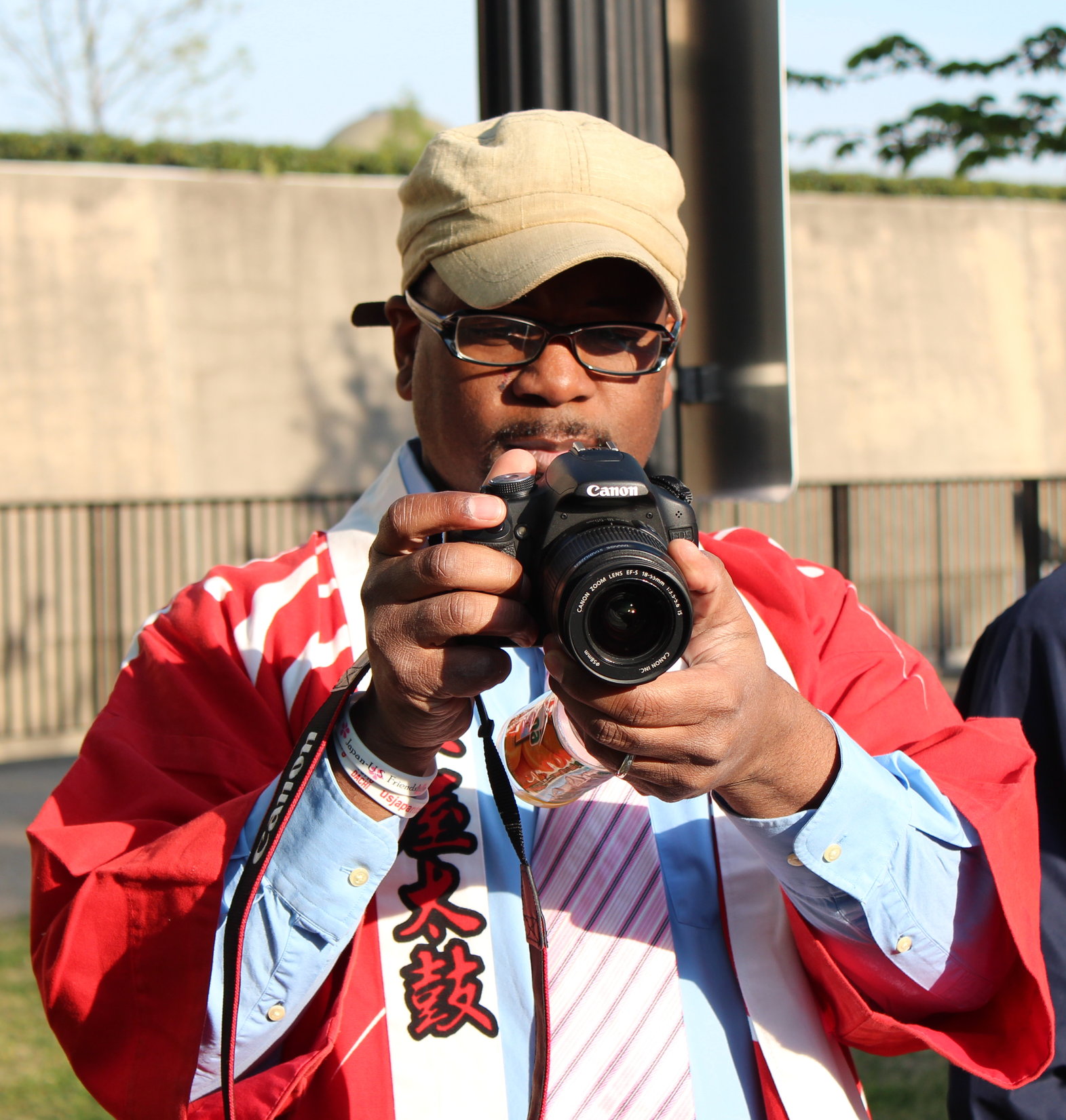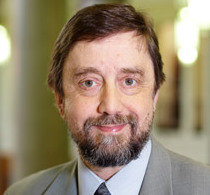Let’s Talk Japan Podcast, Episode 10 – Smile Kids Japan
Let’s Talk Japan is a twice monthly, interview format podcast covering a wide range of Japan-related topics. Host Nick Harling (Mie-ken, 2001-03) lived in Japan from 2001 until 2005, including two great years as a JET Program participant in Mie-Ken. He practices law in Washington, D.C., and lives with his wife who patiently listens to him talk about Japan . . . a lot.
Dear JETs and JET Alumni,
One of the main reasons I started the Let’s Talk Japan podcast was to highlight the positive impact JETs and JET alumni have on their local communities in Japan. In Episode 10, I interviewed Meredith Smith, Media and Public Relations Director for Smile Kids Japan, a volunteer organization founded by JETs in Fukui Prefecture which encourages visits to orphanages in Japan. Through its website and volunteer leadership, Smile Kids Japan helps facilitate such visits by serving as a resource for best practices. This organization is doing amazing work, and I hope this episode helps raise its profile both in Japan and abroad.
Enjoy!
Nick
If you have not already done so, be sure to “Like” the podcast on Facebook, and follow the podcast on Twitter @letstalkjapan. Additionally, please consider leaving a positive rating and/or review in iTunes.
JET alum seeks translators to help with “Rebuilding Tohoku” website project
 Thanks to Owen Rosa (Iwate-ken, 1999-2002) for sharing info about his project. If you’re interested in helping, read below and contact Owen by registering on the website:
Thanks to Owen Rosa (Iwate-ken, 1999-2002) for sharing info about his project. If you’re interested in helping, read below and contact Owen by registering on the website:
The Rebuilding Tohoku website is dedicated to providing information about the changes taking place in Japan in the post Great Northeast Tsunami and Earthquake era.
- This website is trying to create a medium that consolidates information for all subjects related to the rebuilding efforts including but not limited to energy, politics, economics, tourism and philanthropy.
- The site allows for people to join as members and submit articles (in both Japanese and English), pictures, videos, or documents on various subjects or projects related to rebuilding Tohoku.
- The site also asks for Japanese language speakers to volunteer with translations of articles or project information from Japanese to English in order to provide information in English usually not available outside of Japan.
- The overall goal of the website is to provide access to articles and promote projects outside Japan to potential philanthropists, foreign investors or others interested in supporting the rebuilding efforts.
I am reaching out to current and former JETs to ask for your support in volunteering to translate from Japanese to English or provide any information you know about projects supporting the rebuilding efforts. Thank you for your consideration and if you are interested please go to the website at www.rebuildingtohoku.com and register, thank you.
The website was created and operated by Owen Rosa, a former JET (1999-2002) in Iwate Prefecture.
Let’s Talk Japan Podcast: Episode 9, Podcasting About Japan
Let’s Talk Japan is a twice monthly, interview format podcast covering a wide range of Japan-related topics. Host Nick Harling (Mie-ken, 2001-03) lived in Japan from 2001 until 2005, including two great years as a JET Program participant in Mie-Ken. He practices law in Washington, D.C., and lives with his wife who patiently listens to him talk about Japan . . . a lot.
Dear JET Alums,
Do you find yourself going through withdrawal while having to wait two whole weeks for the next episode of the Let’s Talk Japan podcast? If so, check out Episode 9, where I review other great Japan-related podcasts you might want to start listening to. Categories covered include: Life in Japan, Japanese Language Study, Sports, History, Food, Current Events, etc.
Enjoy!
Nick
If you have not already done so, be sure to “Like” the podcast on Facebook, and follow the podcast on Twitter @letstalkjapan. Additionally, please consider leaving a positive rating and/or review in iTunes.
Kyodo News “Rural JET alumni” series: Darryl Wharton-Rigby (Fukushima)
News agency Kyodo News has recently been publishing monthly articles written by JET alumni who were appointed in rural areas of Japan, as part of promotion for the JET Programme. Below is the English version of the column from April 2013. Posted by Celine Castex (Chiba-ken, 2006-11), currently programme coordinator at CLAIR Tokyo.
***********

“I do not know how much of an impact I will have on the people I have met while I have been in Japan but I do know they have had a great impact on mine. Had I not applied for the JET Programme, I do not know what my life would be today.”
Writer, director, and professor, Darryl Wharton-Rigby (Fukushima-ken, Kawamata-machi, 2005-07) hails from a family of poets and storytellers in Baltimore, Maryland. He has earned a BA in History from Ithaca College and a MFA in Film Directing from Chapman University. After being hired by MTV Films to write a screenplay based on the Japanese manga TokyoTribe 2, he moved to Japan and taught English in a small town in Fukushima. He shot his latest short film, Obon, in the town of Natori, which is one of the areas of Japan hardest hit by the earthquake and tsunami. He is now working on a documentary, Don Doko Don: The Yamakiya Taiko Club Story, about a group of young drummers who were displaced due to high levels of radiation in their community from the failed nuclear plant. He has earned awards and grants from the Urbanworld Film Festival, the Maryland State Arts Council, The Painted Bride Arts Center, the Black Filmmakers Hall of Fame, and the Caucus Foundation for his work. He splits his time between Baltimore, Los Angeles and Japan where he currently lives, and credits his wife and three children as his ultimate muse.
A lifetime of happiness
One of the most satisfying and rewarding jobs in my life was working as an ALT in Kawamata in Fukushima Prefecture, Japan from 2005–2007. I have learned over the years that everything happens for a reason and that sometimes in life we are chosen to be at a certain place at a certain time.
I was 37 years old and living in Los Angeles, CA. I was living the life of a struggling filmmaker and needed a change, a break, from my career in film, television, and theatre. Since my first trip to Tokyo on a business trip for MTV I had been longing to return to Japan, because I knew there was more for me to learn and know about Japan. Applying for the JET Programme seemed the perfect opportunity.
From the moment I got accepted, life has moved at a rapid pace. I was placed in Kawamata, in Fukushima Prefecture, a quiet town with rice fields and rivers surrounded by mountains. My life in Kawamata was an adventure every day. I worked in two junior high schools, several elementary schools and kindergartens. It always brought a smile to my face, when I would hear students call my name, “Dariru-sensei!” I did my best to help the Japanese teachers in the classroom with activities and games. I got to know many of the students and could tell the ones who were enthusiastic towards learning English. Read More
JET alum’s “Man of Steel” passion project
An interesting passion project produced by videographer Patrick Lee (Nagasaki-ken, 2010-2012). More of his videos can be seen on his Youtube Channel. He can be contacted through Facebook and Twitter.
Here’s a little background from the WILL & TALE site:
Like many fans, we’ve been anxiously awaiting the release of Man Of Steel since it was announced a few years ago. Taking inspiration from diehard fans who created unofficial title sequences for films such as Adventures of Tintin and X-Men: First Class, we wanted to see how far we could go with this same idea. The result is a passion project – the culmination of many long nights and weekends over the past three months.
The story we developed is a take on our favorite superhero, Superman. We created a narrative of news anchors and eyewitnesses highlighting major events throughout Clark Kent’s life. It was important to have Clark’s story told by the world and show how he has impacted the lives of others.
Nothing in the video has been pulled from a video game or other movie footage. We created all the 2D/3D animations, compositing, articles, voiceover recordings, and more.
I was shocked and saddened today to see a post to the Pacific Northwest JETAA email group letting everyone know that JET alum Toby Weymiller (Hokkaido, 1997-2000) had lost his life in an avalanche. Toby had sent me anecdotes for the JETAA NY Newsletter over the years and also shared how he was building his eco-friendly kissaten in Hokkaido. I also just learned that he had been involved with efforts to rescue animals in Tohoku after the tsunami through AngelsWithFurJapan. According to Toby’s Facebook page and Lynn’s email below, there is a memorial service for him on Saturday, April 20 in Tacoma, WA.
Below is the email sent to the PNW JETAA group:
It is with a heavy heart that I share the sad new of the passing of Toby Weymiller (Hokkaido ALT, 1997-2000) on March 29th from injuries sustained in an avalanche. Though originally interviewed in LA, he departed from Seattle and lived in Seattle for a few years after participating on the JET Program (2004 – 2007), before returning to Hokkaido with his wife Maiko; therefore, in my book, Toby will forever be a member of our Seattle JETs/PNWJETAA family.
For those of you who frequented Kinokuniya around 2005, you may have run into Maiko, as she used to work there. Toby loved being outdoors, and had an a great appreciation for nature and the environment. I never knew what kind of adventure he & was going to embark upon at any given time or what stories he was going tell about Bomber the cat. One of the more memorable ventures was a couple of years after moving back to Japan, when he and Maiko built “Square One” – their straw bale eco-hybrid house in Higashikawa. I remember being fascinated by the whole process, as they shared video updates on YouTube. The project later evolved in to a book that he published in 2011 called “The Building of Square One”.
I just recently learned of this news – thanks to Jeff Huffman for spotting the obituary & passing it on. For any of you who knew Toby, a celebration of his life will be held at the Harmon Brewing Company in Tacoma, WA, this Saturday, April 20 at 4 pm.
Toby, for those of us lucky to have been touched by your friendship, you will be remembered and missed.
Lynn Miyauchi
Seattle PNWJETAA
Membership Committee
*****************
For more information about Toby you can go to the Angels With Fur Japan website: http://angelswithfurjapan.wordpress.com/2013/03/29/toby-weymiller/
There’s also a very nice tribute by a friend with more information about Toby here: http://www.seanmisen.com/?p=941
Life After JET: Teaching perspective from Kevin Stein
A great post about teaching from “The Other Things Matter,” a great blog by Osaka-based ESL teacher Kevin Stein. Kevin is also the author of the article “Even a Native Speaker Stops Sometimes: Helping Japanese Learners to Understand What is Said.”
As many flavors of failure…
I came over to Japan for my first English language teaching job on the Japan Exchange and Teaching Program. It was 14 years ago. I was living way out in the countryside and always looked forward to our big prefectural trainings. At that time, the program directors gathered up the assistant language teachers twice a year and plunked us all down in a hot-spring hotel for three days. During those trainings, I first learned how to use the International Phonetic Alphabet as a tool for pronunciation work. I learned about how to help students adjust to ambiguity in the language classroom (something I recently revisited thanks to the spring issue of The English Connection). And oddly (or perhaps not oddly at all), I met John Fanselow for the first time. He gave a lecture on partial information which has stayed more than partially with me for over a dozen years.
I also remember one more presentation from the first training I attended. It was only thirty minutes or so long. It was given by a very unassuming high school teacher from Japan. He wore a short-sleeved cream colored button-down shirt with a brown necktie. He stood at the front of the room and started telling us about his bullet-train ride into the conference. He hadn’t brought much cash with him, so he bought a cheap Japanese lunch-box before getting on the train. He put his luggage and Japanese lunch-box on the rack above his seat, nodded to the business man sitting next to him, and then promptly took a nap.
When he woke up, he felt a little hungry, so he pulled down his lunch box. He was pleased to find that, even though it was a cheap lunch-box, it was filled with all sorts of strips of beef, some fatty tuna, and quail eggs. He was particularly happy about the quail eggs as they were his favorite. About half way through eating his lunch-box, the businessman next to him also woke up from a nap, stood up, and took down his own lunch-box. But as soon as the businessman opened the lunch-box up, he seemed to get very angry. The presenter said, “I wasn’t sure why he was angry. I guessed that maybe he was disappointed in his lunch-box. It wasn’t as nice as mine. It was the kind with sausages, not steak. Fried fish, not sushi. I felt very bad for him.” Then the presenter started laughing. A real solid laugh that, I think, made everyone else in the room want to laugh as well. “In fact, I was feeling bad for him when he turned to me and said….
Click here to read the full post on Kevin’s blog.
CLAIR Magazine “JET Plaza” series: Dr. Mark Williams (Gunma)
Each month, current and former JET participants are featured in the “JET Plaza” section of the CLAIR Forum magazine. The May 2012 edition includes an article by Dr. Mark Williams, a former British English Teachers Scheme (BETS), the forerunner to the JET Programme. Posted by Celine Castex (Chiba-ken, 2006-11), currently programme coordinator at CLAIR Tokyo.
***********

“Think of your JET experience with a long-term view. […] As time passes, you will realize that your experience left you with the desire to accomplish or attain something. Do not rush, but be patient as you seek to do so.”
After graduating from the University of Oxford with a a BA in Japanese Studies, Dr. Mark Williams (Gunma-ken, Maebashi-shi, 1979-81) came to Japan to work as a member of the British English Teachers Scheme (BETS) in Gunma Prefecture. He moved from there to California to pursue a Ph.D. in postwar Japanese literature then joined the University of Leeds, UK, as a Lecturer in Japanese, to become Professor of Japanese Studies a few years later. He has just completed a 4-year term as President of the British Association for Japanese Studies and 5 years as Head of the School of Modern Languages and Cultures at Leeds and is currently on secondment as Vice President for Academic Affairs at Akita International University, Japan.
The Japan I Came to Know
Two Years in Gunma Prefecture
I participated on the British English Teachers Scheme (BETS) Programme for two years from 1979 to 1981. The BETS Programme was proposed by Nicholas MacLean and is also known as the MacLean Scheme. In Gunma Prefecture, I worked four days per week for two years at one base school each year (Maebashi Minami Senior High School my first year and Shibukawa Girl’s Senior High School my second year). The remaining day of the work week I spent visiting senior high schools throughout the prefecture, and I can say I likely visited every senior high school in the prefecture.
At the time, team-teaching classes were not as established as now, and no matter how enthusiastic, attempts to conduct entire classes in English were unfortunately often short-lived. The classes I conducted at the school I visited on Wednesdays were rich in variety resulting in a trial-and-error approach on my behalf. The several hundred-student school body would gather at once, and I would speak to them in English about my home country England, or explain the origin of English vocabulary words or the characteristics of the English language.
I was one of only a handful of foreigner instructors in Gunma Prefecture at the time. As such, I stood out greatly and even made front-page headlines in a local newspaper. My experience began with my arrival in Japan. The principal of my school came to meet me at Narita Airport, and we traveled from there to Maebashi Station. As soon as I exited Maebashi Station, I found myself surrounded by news reporters. One of them asked about my hobbies, and I replied “I enjoy music.” The headlines of the next morning’s newspaper reported, “New foreign instructor likes to sing.”
JET alum children’s book author Rob Weston keeps producing
 Rob Weston (Nara-ken, 2002-04), author of the one-of-a-kind children’s novel Zorgamazoo, continues his uniquely rhyming ways. In February, he published Prince Puggly of the Spiff and the Kingdom of Spud. And in November he will be publishing a phosphorescent children’s book–The Creature Department.
Rob Weston (Nara-ken, 2002-04), author of the one-of-a-kind children’s novel Zorgamazoo, continues his uniquely rhyming ways. In February, he published Prince Puggly of the Spiff and the Kingdom of Spud. And in November he will be publishing a phosphorescent children’s book–The Creature Department.
About Prince Puggly:
Prince Puggly of Spud and the Kingdom of Spiff is the story of Puggly, a commoner chosen to be the prince—not the king, definitely not the king—of the extremely unfashionable Kingdom of Spud.
The newly-crowned Puggly is surprised to receive an invite to a party in the kingdom next door, the painfully chic Kingdom of Spiff. When Puggly shows up in plaid trousers and a polka-dot cape, the stylish Spiffians are not amused—especially when when it turns out Puggly’s invite is a forgery.
But hark! All is not lost. Puggly soon discovers an unexpected ally in Francesca, the bookish Princess of Spiff. Together, the two friends set out to teach the Spiffs an absurd lesson in style…
For more info, go to: http://robertpaulweston.com/
Here are clips of Rob from the 2009 JETAA NY JET Alumni Author Showcase.
Tohoku Tomo Update 03.26.13
Wesley Julian (Miyagi-ken, 2008-10) is now in Japan with a small film crew making a video that will share the story of JET alums and others who have made and continue to make a difference in Tohoku, Japan. Below is a video update from Wesley regarding his Tohoku Tomo project:
Tohoku Tomo Update from Philip Holbrook on Vimeo.
JET alum Nick Harling starts “Let’s Talk Japan” podcasts
A great idea just started by former JETAA DC Vice-President Nick Harling (Mie-ken, 2001-03):
Dear JET Alumni,
I want to let you know about a new project that I recently started in an effort to engage my long-held interest in Japan – The Let’s Talk Japan Podcast.
Up until last spring, I volunteered as Vice-President of the JET Alumni Association in Washington, DC, and through that experience I met many people with interesting Japan-related jobs and life experiences. After two years in that capacity, it was time to move on to something new, and last fall I decided that that something would be a podcast.
My first episode appeared in iTunes on January 1st of this year. Topics covered so far have include the JET Program application process, the mission of the Sister Cities International and Kizuna Across Cultures organizations, and discussions with an atomic bomb survivor and an expert on Japanese baseball. Whenever possible, I will also highlight the contributions JET alumni are making in their home countries.
If you are interested in checking it out, you can subscribe to the podcast in iTunes. If you like the podcast, feel free to leave a positive rating. You can also interact with the podcast at www.letstalkjapan.com, through Facebook, or on Twitter @letstalkjapan.
I hope you enjoy the podcast, and I welcome your feedback.
Nick Harling
Mie-Ken 2001-03
***************
Recent posts from Let’s Talk Japan Podcast:
002 The JET Program Application Process
003 Sister Cities International
006 Banzai Babe Ruth Author Robert K. Fitts
JET Alum Establishes “Tsunami Survivor Fund to Save Miyagi”
A new effort started by Miyagi JET alum Canon Purdy:
Welcome to Save Miyagi, a non profit, unincorporated charity organization dedicated to helping Miyagi and Minamisanriku rebuild after the devastating earthquake and tsunami of March 11th, 2011.
Canon Purdy and her family founded this organization after Canon was stranded without contact in the town of Minamisanriku, where she had taught English for two years before.
SaveMiyagi successfully donated to the Minamisanriku Board of Education in August (check blog for details). Our next project is sending Paper Cranes to Northern Japan to support their recovery process.
Please check out the video below or the page above, and consider getting involved.
JET alum Arthur Migliazza plays the Boogie Stomp
Just learned about a talented JET alum musician via the Pacific Northwest JETAA Facebook group–boogie woogie and blues piano player Arthur Migliazza. Have a look and a listen:
JET Alumni Meet Prime Minister Abe in D.C.
Via the CLAIR New York (aka Japan Local Government Center) Blog:
JET Alumni Meet Prime Minister Abe in D.C. (click to see photos of the event)
On February 22nd, around 15 JET alumni were invited to the reception held by Japan’s Prime Minister Abe in Washington, D.C.
Among them were Mr. Michael Green (Senior Vice President for Asia and Japan Chair, Center for Strategic & International Studies), Mr. James Gannon (Executive Director, Japan Center for International Exchange/USA), Mr. David Boling (Deputy Executive Director, The Maureen and Mike Mansfield Foundation), Ms. Paige Cottingham-Streater (Executive Director, Japan-U.S. Friendship Commission), and Ms. Leigh Ann Mastrini (President, JETAA DC). The families of Taylor Anderson and Monty Dickson were also invited.
They talked with Prime Minister Abe about various topics, including how the JET Programme has influenced their lives, and the importance of the JET Programme and other person-to-person exchanges, etc.
************
JETAA – 安倍総理とJETプログラム参加経験者達が交流
2月22日、ワシントンD.C.において、訪米中の安倍総理大臣が主催するレセプションにJETプログラム参加経験者も招待され、総理と交流する機会がありました。
招待されたJETプログラム(前身のMEFプログラムを含む)関係者は、マイケル・グリーンさん(戦略国際問題研究所上級顧問・元大統領特別補佐官・静岡県)、ジェームス・ギャノンさん(米国法人日本国際交流センター所長・愛媛県)、デービッド・ボリングさん(マンスフィールド財団副事務局長・前連邦下院議員選挙候補・茨城県)、ページ・カティンガムさん(日米友好基金事務局長・三重県)、リーアン・マーストリニさん(JETAAワシントンDC支部長・兵庫県)など10数名のJETプログラム参加者と、先の東日本大震災でJETプログラム参加中に亡くなったテイラー・アンダーソンさん(宮城県石巻市)、モンゴメリー・ディクソンさん(岩手県大槌町)の御家族です。
JETプログラム関係者の席はレセプションの最前列に配置され、JETプログラムへの参加が人生に与えた影響や、JETプログラムを含む人的交流の重要性などについて、総理と会話を交わしていました。
JCIE Special Report on Giving to Japan and the Current Status
Thanks to Jim Gannon (Ehime-ken, 1992-94), Executive Director of the Japan Center for International Exchange (JCIE/USA), for sharing this uniquely informative and eye-opening report from his organization on what’s been going on in Japan with regard to recovery and donations.
From a JET perspective, it’s very useful information as a point of reference with regard to the strength of US / Japan ties in the areas such as sister city / state, and JET alumni efforts. It also really highlights the depth of the linkage between the two countries extending beyond the security and economic relationships to the personal level connections that are, for the most part, not simply based on having a large immigrant community. Additionally, it notes the state of the nonprofit sector and volunteerism in Japan and to increasing awareness of how that sector would benefit from developing further.
US Giving for Japan Disaster Exceeds $710 Million
Record Amount for Overseas Disaster in a Developed Country
http://www.jcie.org/311recovery/usgiving3.html
Intro Paragraph: In the two years since Japan was struck by an earthquake and tsunami of apocalyptic proportions, Americans have donated $712.6 million to help with relief and recovery efforts. These figures, which come from a survey conducted by the Japan Center for International Exchange (JCIE), indicate that the outpouring of US giving is the largest ever for a disaster in another developed nation, and the fifth most generous US response to any disaster in history.
JET Reference: In many instances, fundraising campaigns were driven by people who had connections to Japan through overseas study or from working in the country through programs such as the Japan Exchange and Teaching Program, and for others it came from their affinity for Japanese anime, sports, language, or traditional culture.
On the Non-Profit Sector in Japan: In the immediate aftermath of the disaster, a handful of American commentators with limited knowledge of Japan advised against donating because Japan is a rich country. However, they overlooked the fact that, while Japan is a rich country, its nonprofit sector is relatively poor and underfinanced. US donations ended up having an outsized impact precisely because the funding base of Japanese nonprofits has traditionally been so limited and because these nonprofit organizations play such a crucial role by performing services that government agencies cannot manage, thus filling the gaps in the disaster response.
CLICK HERE to read the full report.


